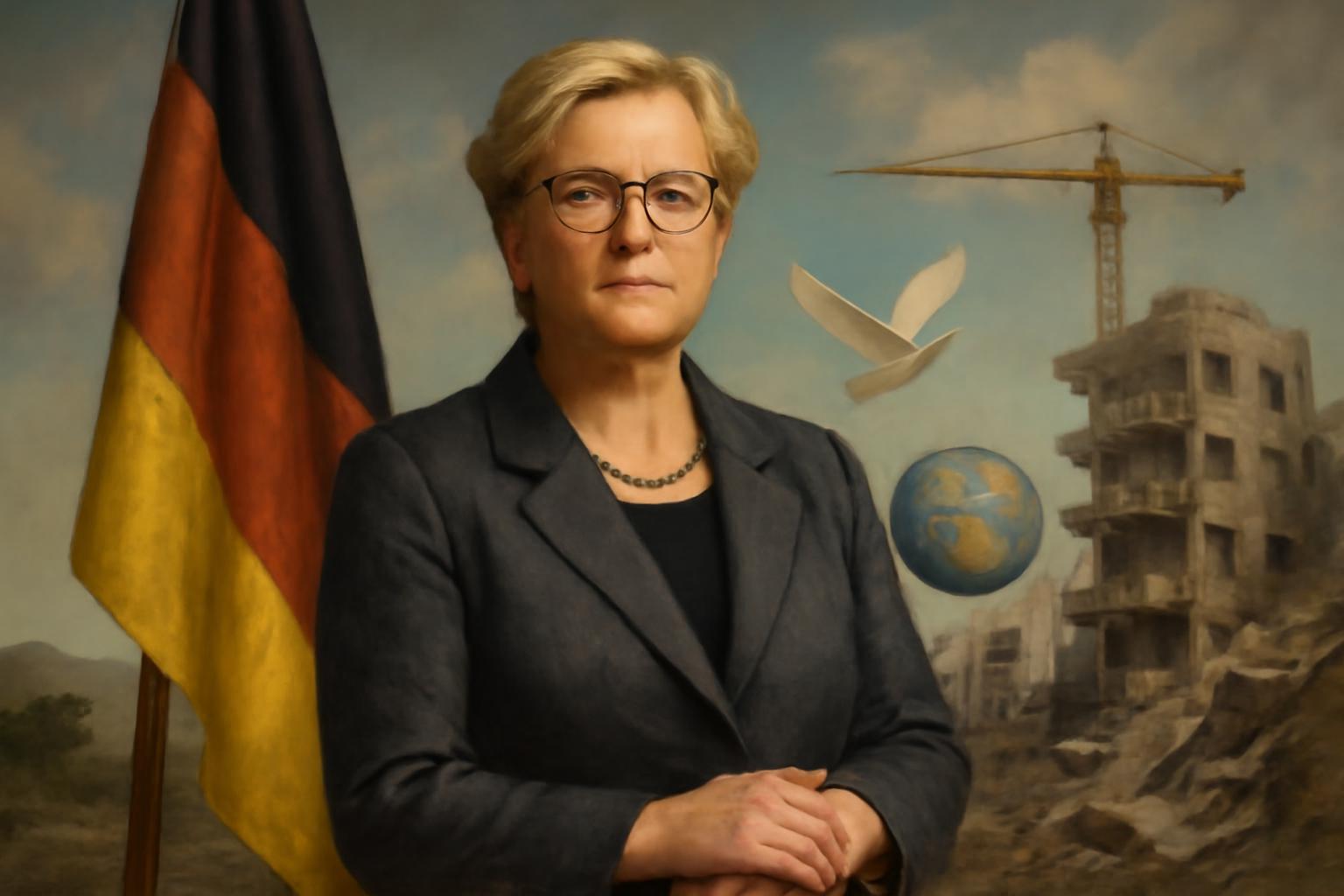One must admit, the scene is nothing if not procedure-perfect: the Development Minister, Reem Alabali Radovan, at thirty-five the youngest face in Chancellor Merz’s cabinet, is touring the West Bank with layovers in Jordan and Saudi Arabia to drum up plans for Gaza’s reconstruction. Her backstory reads like a cross-continental grant application: born in Moscow in 1990 to Iraqi parents who sought asylum in Germany, raised in the former East, schooled in German yet speaking Arabic at home, only to see her parents’ credentials go unrecognized. A political science degree from the Free University of Berlin opened the door to frontline work with asylum seekers, then rapid ascents in migration and integration, culminating in senior roles as state minister for migration, refugees and integration and federal commissioner for antiracism before joining the SPD in 2021 and winning a Bundestag seat. In 2024 she assumed command of the BMZ, a portfolio she insists is essential even as belts tighten and questions swirl about its place in Germany’s security and migration apparatus. She argues that development aid belongs in the security strategy game, a tool to address the root causes of flight. On this Middle East mission she must balance pressure for harsher critique of Israeli policy with the imperative to mobilize support for Gaza’s reconstruction, urging UN agencies to operate within Gaza, pushing for a permanent ceasefire, pledging support for a Gaza reconstruction conference while rejecting any plan that would entail expulsion of Palestinians. Her colleagues expect her to thread the needle, aligning with Chancellor Merz’s line while securing regional backing.
The spectacle of a government minister treating the world like a chessboard is not new, yet one cannot help but snicker at the mere theater of it. A chairwoman of development and security, a diplomat with a passport in several languages, parading through Jordan and Saudi Arabia as if the world’s woes can be coin-operated at the border. And there is the glorious arithmetic of it all: cut budgets, still insist aid is security, and pretend the moral burden of Gaza can be solved with a conference button and a press release. How enriching it must be to frame humanitarian relief as a pillar of national safety, to declare that “root causes” must be smoothed away by funding rather than, say, hard choices and realpolitik. One marvels at the elegance with which high office can sweep aside the ordinary citizen’s skepticism, substituting grand abstractions for the messy grit of everyday consequence.
Then again, there is the matter of Gaza itself, the ceasefire that must outlast a moment’s political appetite, and the insistence on UN operational feet on the ground while avoiding any plan that would force a Palestinian diaspora by expulsion. Such nuance must ring sweet to the ear of any observer who enjoys the luxury of distance and uncertainty. Yet one cannot ignore the pressure cooker: a portfolio accused of being splashed with idealism in a time of budgetary conservatism, a minister who must persuade allies, rivals, and donors that reconstruction is not charity but strategic inevitability. The cunning flourish here is to present reconstruction as a form of insurance—build the future or watch the region burn the stones of your own reputation. If she can actually stitch together credibility with realism, perhaps she will prove me wrong about the ease with which virtue can be monetized. Until then, I watch with the keen eye of someone who knows that real power wears a tailored smile and never negotiates from the back foot.
